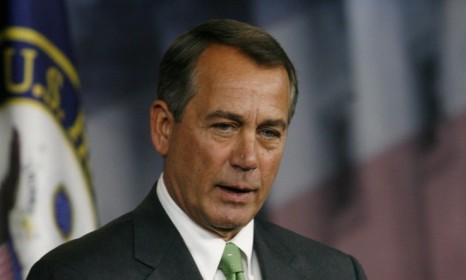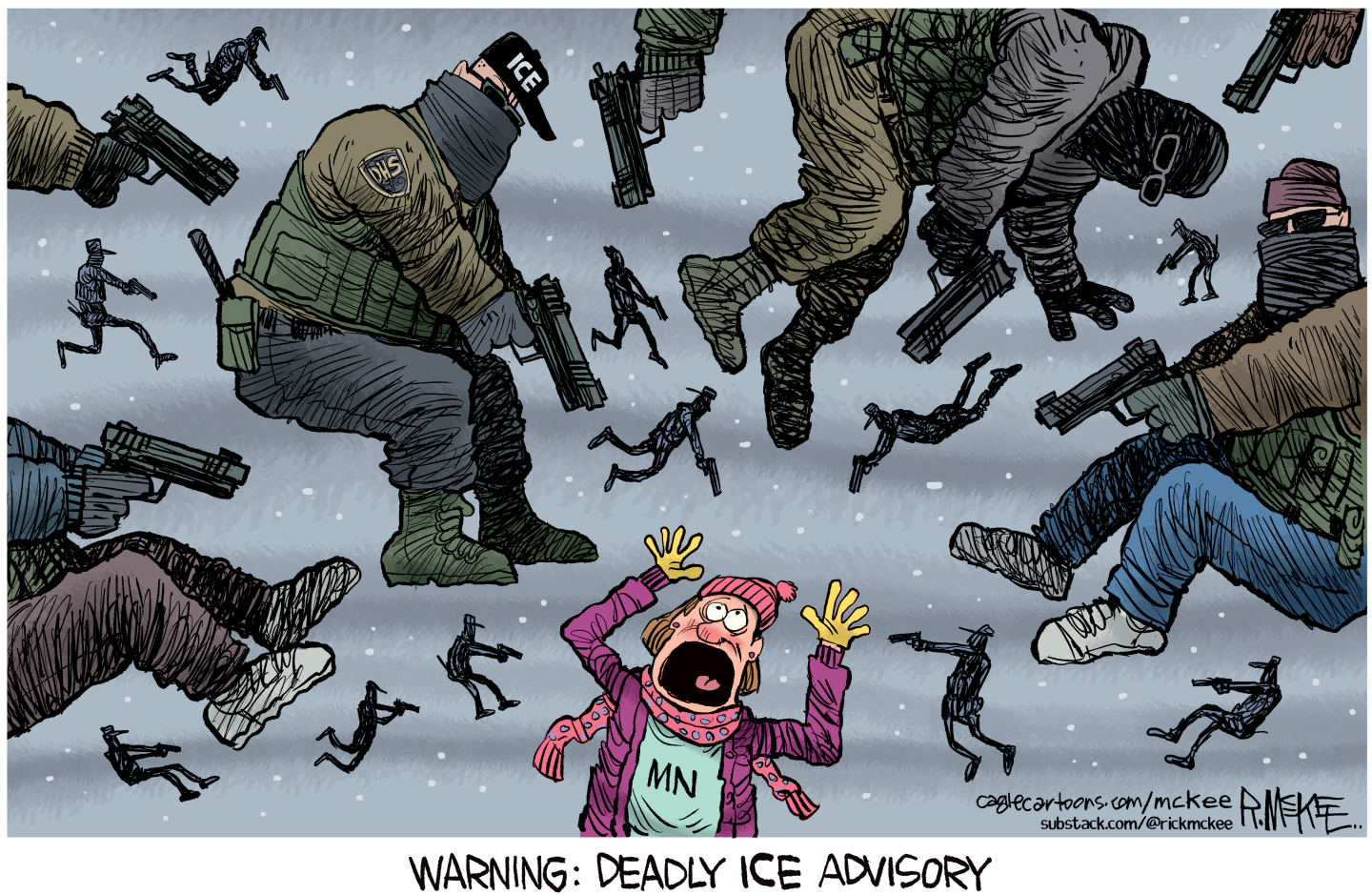Would the GOP budget kill 700,000 jobs?
The Republican plan to slash federal spending would cost the economy hundreds of thousands of jobs, according to a new independent economic analysis

The House Republicans' plan to make deep cuts to the federal budget isn't getting much love from independent economists. Last week, Goldman Sachs predicted that the $61 billion in proposed cuts would reduce U.S. economic growth by 2 percentage points this year. Then on Monday, Moody's chief economist Mark Zandi said the GOP budget would cost the U.S. economy 700,000 jobs through 2012. Is the GOP plan a job killer?
Yes, this plan is poisonous: The GOP knows that people care about jobs, not the deficit, says Steve Benen at Washington Monthly. After all, in 2010 they "ran on a 'where are the jobs' platform," and won. So why are they now "aggressively pushing a plan they know will make unemployment much worse?" Is it nothing but "politically motivated economic sabotage"? That's a debate worth having.
"The GOP plan to make unemployment much worse"
The Week
Escape your echo chamber. Get the facts behind the news, plus analysis from multiple perspectives.

Sign up for The Week's Free Newsletters
From our morning news briefing to a weekly Good News Newsletter, get the best of The Week delivered directly to your inbox.
From our morning news briefing to a weekly Good News Newsletter, get the best of The Week delivered directly to your inbox.
No, the forecasts are wrong: Zandi and other economists pushing these job-loss numbers are relying on the same "old-style Keynesian approach" that failed to deliver a reliable forecast for the 2009 stimulus, says Stanford economist John B. Taylor at Economics One. And they're discounting the smart theory that putting our "fiscal house in order" by closing the deficit will spur growth by getting businesses off the sidelines. If anything, we should cut more than the GOP wants.
"Goldman Sachs wrong about impact of House budget proposal"
The burden of proof is on the GOP: "I can't vouch for these numbers" from Zandi, says Jonathan Cohn in The New Republic. But I do know why John McCain's 2008 economic adviser is "now the Democrats' favorite economist to cite." Zandi's argument, that "in the midst of a recession, less government spending is almost certainly going to mean fewer jobs," is one that both Democrats and mainstream economists agree on.
"Zandi: GOP plan means 700,000 fewer jobs"
A free daily email with the biggest news stories of the day – and the best features from TheWeek.com
-
 What would a credit card rate cap mean for you?
What would a credit card rate cap mean for you?the explainer President Donald Trump has floated the possibility of a one-year rate cap
-
 Is the American era officially over?
Is the American era officially over?Talking Points Trump’s trade wars and Greenland push are alienating old allies
-
 Political cartoons for January 26
Political cartoons for January 26Cartoons Monday's political cartoons include an ICE storm, the TikTok takeover, and Iranian-style reform
-
 The billionaires’ wealth tax: a catastrophe for California?
The billionaires’ wealth tax: a catastrophe for California?Talking Point Peter Thiel and Larry Page preparing to change state residency
-
 Bari Weiss’ ‘60 Minutes’ scandal is about more than one report
Bari Weiss’ ‘60 Minutes’ scandal is about more than one reportIN THE SPOTLIGHT By blocking an approved segment on a controversial prison holding US deportees in El Salvador, the editor-in-chief of CBS News has become the main story
-
 Has Zohran Mamdani shown the Democrats how to win again?
Has Zohran Mamdani shown the Democrats how to win again?Today’s Big Question New York City mayoral election touted as victory for left-wing populists but moderate centrist wins elsewhere present more complex path for Democratic Party
-
 Millions turn out for anti-Trump ‘No Kings’ rallies
Millions turn out for anti-Trump ‘No Kings’ ralliesSpeed Read An estimated 7 million people participated, 2 million more than at the first ‘No Kings’ protest in June
-
 Ghislaine Maxwell: angling for a Trump pardon
Ghislaine Maxwell: angling for a Trump pardonTalking Point Convicted sex trafficker's testimony could shed new light on president's links to Jeffrey Epstein
-
 The last words and final moments of 40 presidents
The last words and final moments of 40 presidentsThe Explainer Some are eloquent quotes worthy of the holders of the highest office in the nation, and others... aren't
-
 The JFK files: the truth at last?
The JFK files: the truth at last?In The Spotlight More than 64,000 previously classified documents relating the 1963 assassination of John F. Kennedy have been released by the Trump administration
-
 'Seriously, not literally': how should the world take Donald Trump?
'Seriously, not literally': how should the world take Donald Trump?Today's big question White House rhetoric and reality look likely to become increasingly blurred